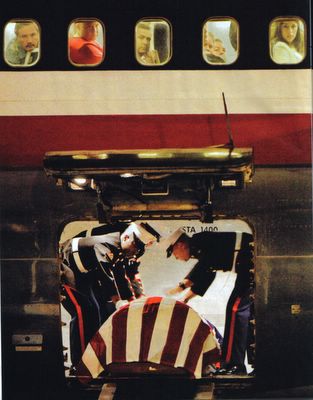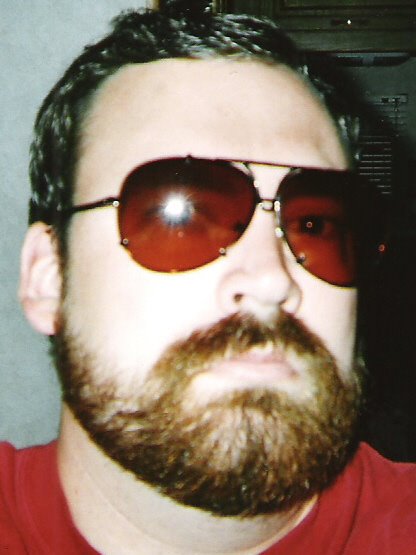I've Been To The Mountain Top
by Dr. Martin Luther King Jr.
April 3, 1968, Memphis, Tennessee
This was Dr. King's last, and most apocalyptic, sermon. He delivered it, on the
eve of his assassination, at [the Bishop Charles] Mason Temple in Memphis, Tennessee,
on April 3, 1968. Mason Temple is the headquarters of the Church of God in Christ,
the largest African American pentecostal denomination in the United States.
(Excerpts)
The masses of people are rising up. And wherever they are assembled today, whether they are in Johannesburg, South Africa; Nairobi, Kenya: Accra, Ghana; New York City; Atlanta, Georgia; Jackson, Mississippi; or Memphis, Tennessee--the cry is always the same--"We want to be free."
And another reason that I'm happy to live in this period is that we have been forced to a point where we're going to have to grapple with the problems that men have been trying to grapple with through history, but the demands didn't force them to do it. Survival demands that we grapple with them. Men, for years now, have been talking about war and peace. But now, no longer can they just talk about it.
It is no longer a choice between violence and nonviolence in this world; it's nonviolence or nonexistence.
That is where we are today. And also in the human rights revolution, if something isn't done, and in a hurry, to bring the colored peoples of the world out of their long years of poverty, their long years of hurt and neglect, the whole world is doomed. Now, I'm just happy that God has allowed me to live in this period, to see what is unfolding. And I'm happy that he's allowed me to be in Memphis.
And that's all this whole thing is about. We aren't engaged in any negative protest and in any negative arguments with anybody. We are saying that we are determined to be men. We are determined to be people. We are saying that we are God's children. And that we don't have to live like we are forced to live.
Secondly, let us keep the issues where they are. The issue is injustice.
And we've got to say to the nation: we know it's coming out. For when people get caught up with that which is right and they are willing to sacrifice for it, there is no stopping point short of victory.
But somewhere I read of the freedom of assembly. Somewhere I read of the freedom of speech. Somewhere I read of the freedom of the press. Somewhere I read that the greatness of America is the right to protest for right. And so just as I say, we aren't going to let any injunction turn us around. We are going on.
We need all of you. And you know what's beautiful to me, is to see all of these ministers of the Gospel. It's a marvelous picture. Who is it that is supposed to articulate the longings and aspirations of the people more than the preacher? Somehow the preacher must be an Amos, and say, "Let justice roll down like waters and righteousness like a mighty stream."
Somehow, the preacher must say with Jesus, "The spirit of the Lord is upon me, because he hath anointed me to deal with the problems of the poor."
But I want to thank them all. And I want you to thank them, because so often, preachers aren't concerned about anything but themselves. And I'm always happy to see a relevant ministry.
It's alright to talk about "long white robes over yonder," in all of its symbolism. But ultimately people want some suits and dresses and shoes to wear down here. It's alright to talk about "streets flowing with milk and honey," but God has commanded us to be concerned about the slums down here, and his children who can't eat three square meals a day. It's alright to talk about the new Jerusalem, but one day, God's preacher must talk about the New York, the new Atlanta, the new Philadelphia, the new Los Angeles, the new Memphis, Tennessee. This is what we have to do.
Let us develop a kind of dangerous unselfishness.
That's the question before you tonight. Not, "If I stop to help the sanitation workers, what will happen to all of the hours that I usually spend in my office every day and every week as a pastor?" The question is not, "If I stop to help this man in need, what will happen to me?" "If I do no stop to help the sanitation workers, what will happen to them?" That's the question.
Well, I don't know what will happen now. We've got some difficult days ahead. But it doesn't matter with me now. Because I've been to the mountaintop. And I don't mind.
Like anybody, I would like to live a long life. Longevity has its place. But I'm not concerned about that now. I just want to do God's will. And He's allowed me to go up to the mountain. And I've looked over. And I've seen the promised land. I may not get there with you. But I want you to know tonight, that we, as a people will get to the promised land. And I'm happy, tonight. I'm not worried about anything. I'm not fearing any man. Mine eyes have seen the glory of the coming of the Lord.
Back to: DrMartinLutherKingJr.com
From: http://www.drmartinlutherkingjr.com/





